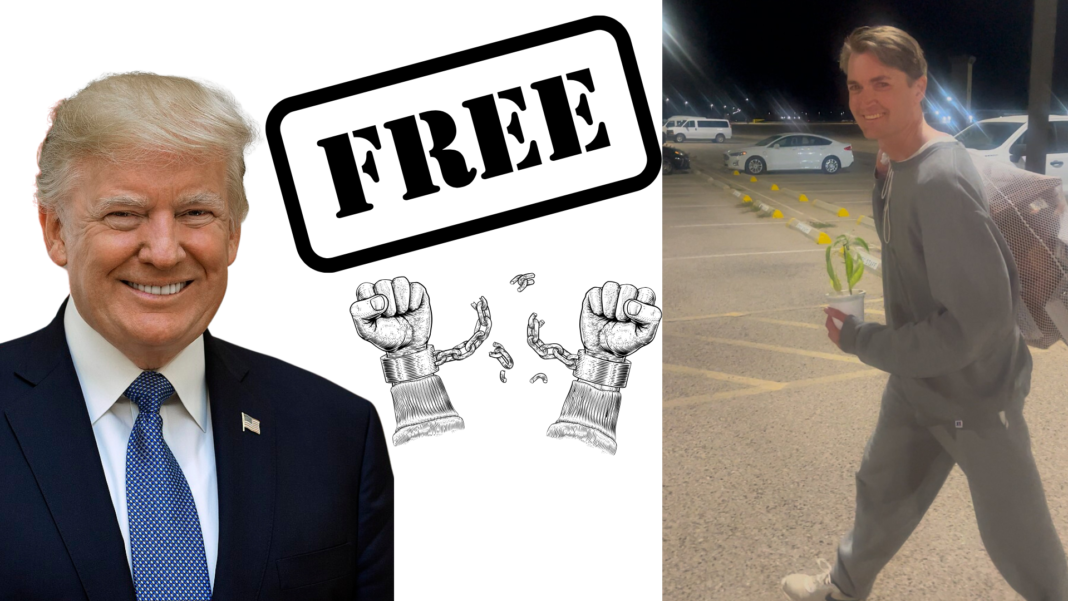On Tuesday, former President Donald Trump issued a presidential pardon to Ross Ulbricht, the Silk Road online marketplace founder.
Ulbricht, a prominent figure in cryptocurrency and libertarian circles, was serving a double life sentence without parole following his 2015 conviction on charges that included distributing illegal drugs online.

A Promise Fulfilled to the Crypto Community
The pardon fulfils a pledge Trump made to appeal to the cryptocurrency sector during his campaign. The crypto industry, which reportedly invested over $100 million in influencing the election, had long advocated for Ulbricht’s release.
Trump’s alignment with these interests underscores the growing political influence of the cryptocurrency world.
Ulbricht, now 40, pioneered Bitcoin, leveraging the cryptocurrency to operate Silk Road, an anonymous marketplace often used for illicit activities.
His case became a symbol for debates over government surveillance, individual freedom, and the boundaries of legal punishment in the digital age.
Trump’s Statement Sparks Controversy
Trump referred to federal prosecutors from the Southern District of New York as “scum” and accused them of being part of the alleged “weaponization of government” against him.
His comments reignited debates about the justice system and the treatment of high-profile cases. Trump’s language, coupled with the decision to pardon Ulbricht, drew both support and criticism from different corners of the political spectrum.
Libertarian Party Welcomes the Decision
The Libertarian Party, which has long championed drug legalization and criticized government overreach, welcomed Ulbricht’s release.
Trump’s intention to pardon Ulbricht was first announced during a Libertarian Party convention in May, cementing his efforts to appeal to this voter base.
The party lauded the decision as a step toward addressing what they perceive as excessive government control.
Ulbricht’s Release and Public Reaction
Ulbricht was seen leaving prison carrying a plant, a backpack, and a smile, a stark image of relief and freedom after nearly a decade behind bars.
His release has sparked renewed discussions about the ethics of his conviction, with some viewing him as a victim of an overly punitive system and others warning against romanticizing his actions.
The pardon raises significant questions about the role of presidential clemency, the relationship between politics and the justice system, and the broader implications for cryptocurrency regulation.
While Ulbricht’s supporters see this as a victory for personal liberty and judicial reform, critics argue it sets a dangerous precedent for pardoning individuals involved in criminal enterprises.
Also Read: Silk Road Founder Ross Ulbricht Denies Involvement In $ROSS Memecoin, Token Plummets 30%


